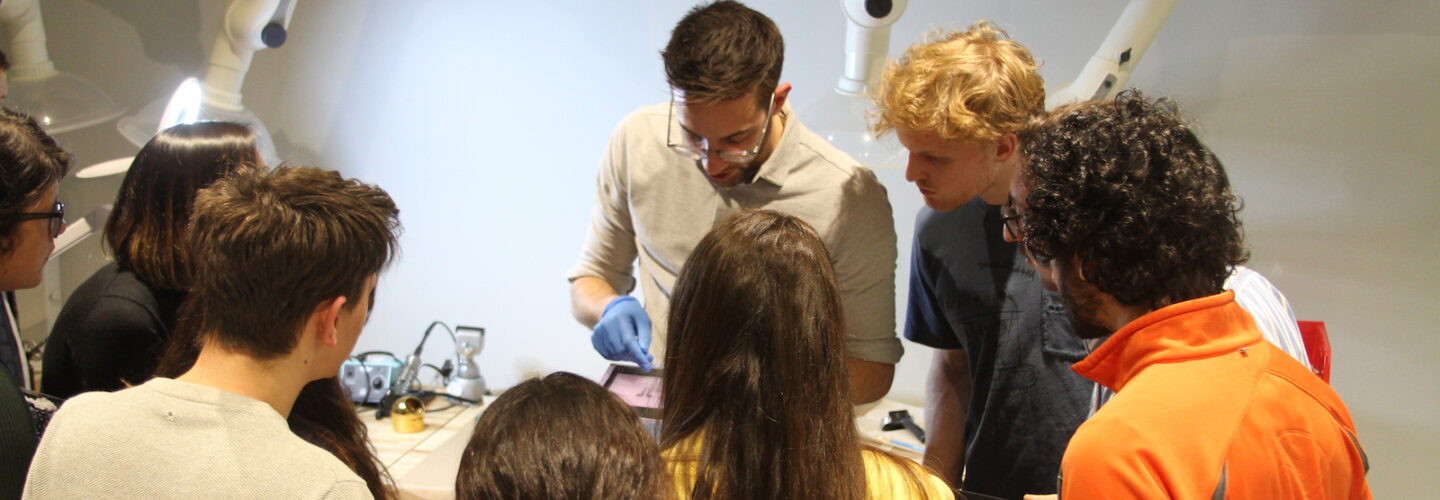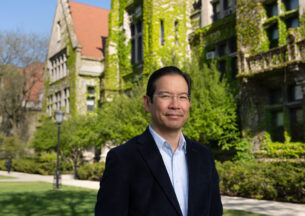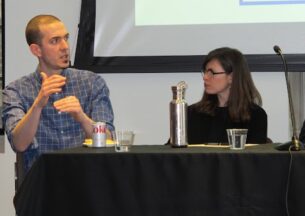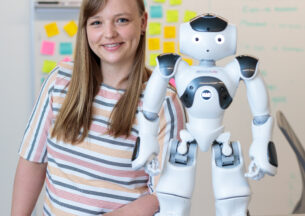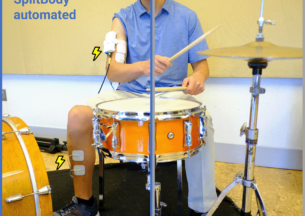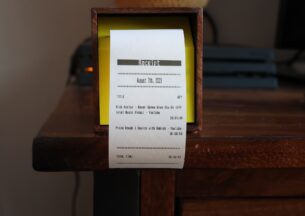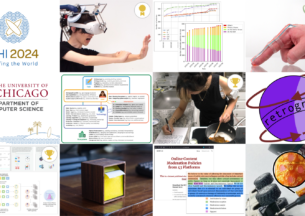From Wearable Tech to AI, UChicago Builds Future of Computer Science
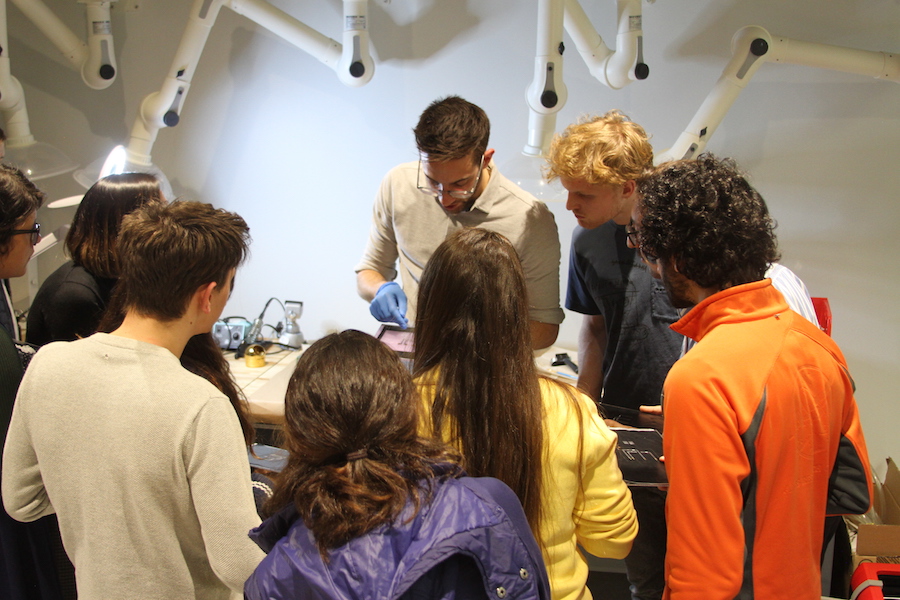
Inside the John Crerar Library, you might catch a glimpse of the future.
Just off the lobby, University of Chicago computer scientists and artists are using digital fabrication tools in the Media Arts, Data and Design Center to create stretchable electronics that could power tomorrow’s wearable devices. While upstairs, researchers aren’t just advancing the foundations of data science and artificial intelligence, but facilitating their application in other fields, and sniffing out how malicious parties could exploit them.
What’s happening in the newly renovated home of computer science at UChicago reflects the department’s ongoing transformation and growth, which has accelerated in the last three years. Since the arrival of Prof. Michael Franklin in 2016 as the Liew Family Chair of Computer Science, the department is on track to nearly double in size, adding new faculty with expertise in cutting-edge areas from AI to human-computer interaction, from data science to cybersecurity.
The expansion has come as the interest in computer and data science grows markedly. Reflecting national trends, undergraduate enrollment in computer science courses at UChicago has surged in the last decade, and bachelor’s and PhD degrees granted in the discipline have grown more than 500 percent. With new faculty come new courses and laboratories, where students can engage with innovative topics such as robotics, quantum computing, computer vision, and cryptocurrencies.
Today, computer science is more closely interwoven with society than ever, demanding collaborative, multidisciplinary research. Franklin and colleagues envision a uniquely UChicago approach to computer and data science—one that is based in computing foundations and utilizes the vast possibilities of data to pioneer powerful applications to shape and define these emerging fields. That holistic vision is supported by joint computer science programs with the Harris School of Public Policy and the Booth School of Business, and new campus-wide initiatives such as the Center for Data and Computing, which catalyzes data science collaborations across divisions and schools.
“The way you do impactful computer science research is to work with people who are trying to solve real problems,” Franklin said. “Computation and data science have become powerful approaches for reformulating traditional questions about markets and society, human health and the humanities. The University is uniquely poised to define the future of computer and data science in light of our culture of inquiry and impact.”
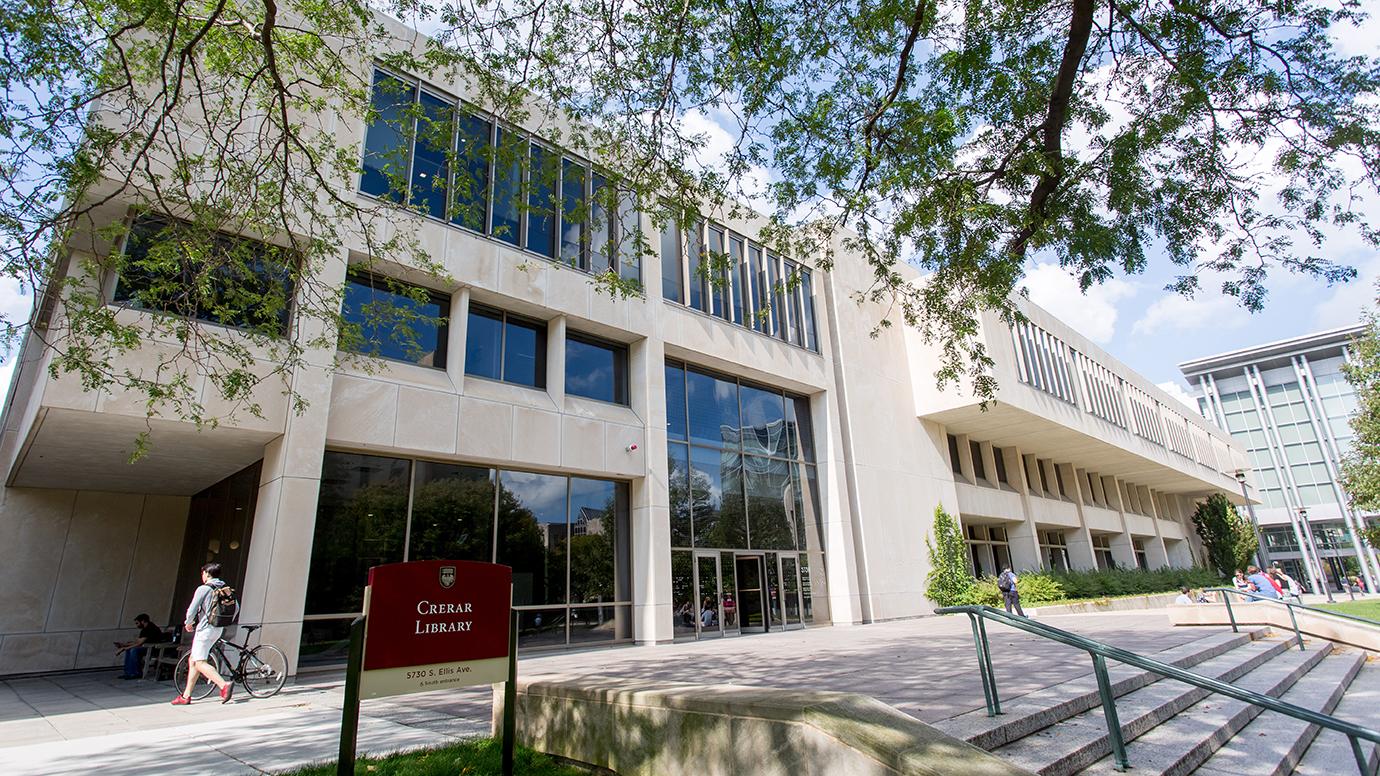
New Faculty Bring Inventive Attitude
Asst. Prof. Pedro Lopes’ laboratory has the feel of a high-tech toy workshop. Using the latest in 3-D printers, muscle-stimulating wearables and virtual reality headsets, Lopes and his students conjure up experimental new technologies—from musical instruments you play by plucking the air to sensory illusions that make VR experiences more realistic. Occasionally, Lopes’ pursuits spill over into the art world, such as Ad Infintium, an installation at the 2017 Ars Electronica meeting in which a “parasitic” machine took control of users’ muscles to power itself.
The work sits at the vanguard of human-computer interaction, an inherently multi-disciplinary sub-field of computer science that studies how we use our devices—and how they shape us. Lopes, who joined UChicago in January, approaches his field by first inventing new technologies, then interrogating their scientific and philosophical meaning. For him, the breadth of knowledge displayed by UChicago students and faculty convinced him the University was the right place to base his research.
“The University of Chicago has a very special approach to education, one that allows students to be ultra-creative and ultra-critical in all disciplines,” Lopes said. “Human-computer interaction is already this transdisciplinary field, and I felt like here there were already all these people that were mixed personalities and mixed backgrounds. That was a huge draw.”
Other new faculty push forward the technology of artificial intelligence, improving the performance of computers on complex tasks and porting those abilities into new fields of science and industry. Rebecca Willett, a professor in computer science and statistics, creates data science and machine learning methods that help scientists in neurobiology, agriculture, astronomy and medicine extract new discoveries from messy, complex data or low-resolution images.
Sanjay Krishnan, an assistant professor who joined UChicago last summer, designs “intelligent learning systems” that can improve the performance of surgical robots or self-driving cars. Michael Maire, who moved to UChicago from the affiliated Toyota Technological Institute at Chicago, studies the architecture of neural networks, the favored approach for teaching computers to recognize images or outperform humans on the board game Go.
While these new faculty explore and expand the potential of AI and computation, Profs. Ben Zhao and Heather Zheng work to ensure that these technologies won’t be used to injure instead of innovate. Zhao engineered AI systems capable of writing convincingly fake restaurant reviews for Yelp and created alarms for “backdoors” placed into applications by malicious programmers, while Zheng examines how wireless smart home devices can be exploited to see inside buildings. By bringing these malicious possibilities into the light, researchers can create protections before they are abused.
“Right now, these technologies are extremely powerful, and yet they're not sufficiently well- studied or vetted. We don't have the tools to understand and test them like we do with normal software,” Zhao said. “I think it's the responsibility of the CS community to provide these tools so that we can be certain of these technologies’ reliability and behavior.”
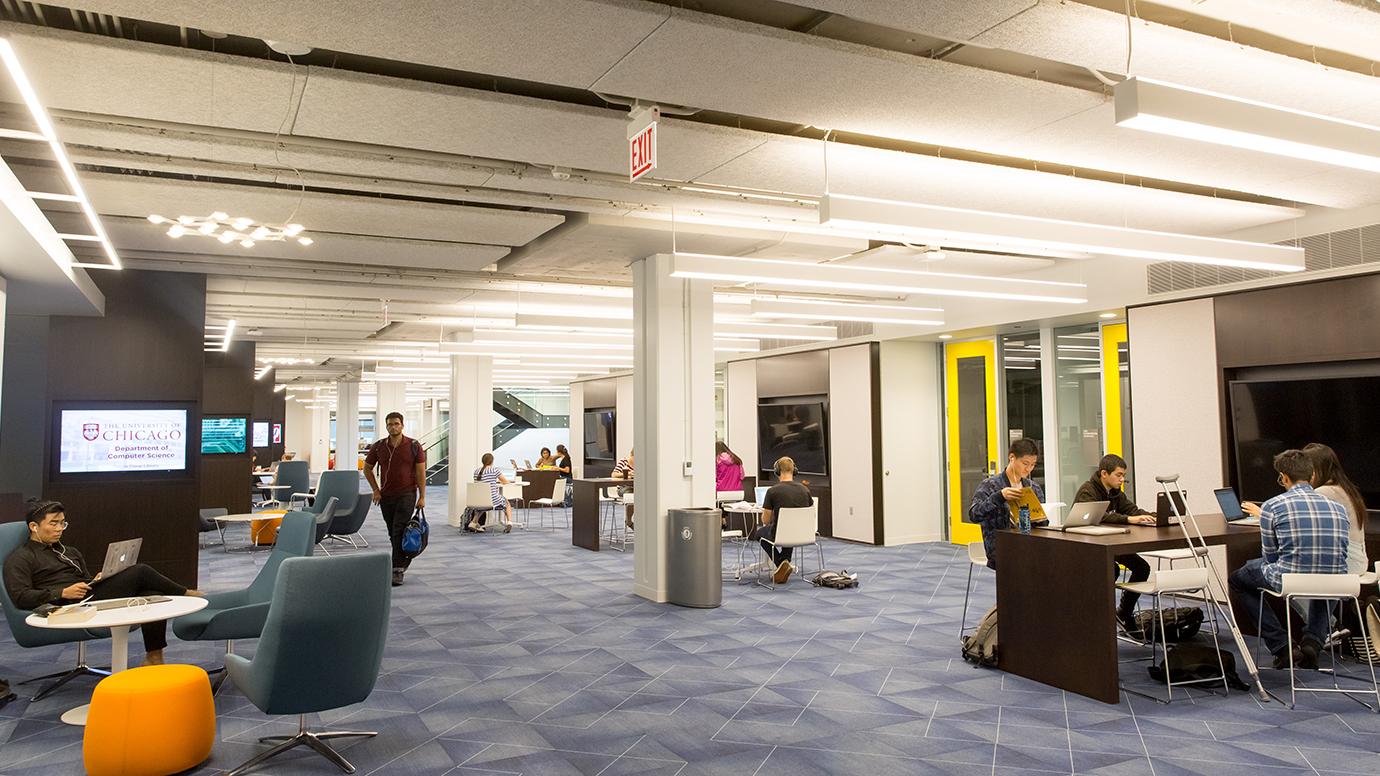
Campus-wide Computational Crossroads
Even with all these new faces, the computer science hiring continues. This spring, more than 25 prospective faculty recruits from leading computer science programs around the world visited campus, as the department looks to continue its growth.
“We’re building a top-tier computer science program at the University of Chicago, and that means adding expertise in research areas that are critical for the technologies of today and tomorrow,” Franklin said.
Computer science no longer operates in isolation, as virtually every discipline draws upon its methods and tools. The most vivid example is the rapid rise of data science, a confluence of computer science and statistics that has helped realize the potential of the “Big Data” era in business and science. New techniques for extracting knowledge from the ever-growing flood of data have produced breakthroughs in finance, medicine, physics and urban studies, even though data science remains a young field.
To promote further advances in the foundations of data science and its applications across domains, UChicago founded the Center for Data and Computing, an incubator for multidisciplinary research. This month, the center announced its first round of seed grants, funding projects that combine researchers from all corners of campus. The first cohort includes a mobile decision-making interface for doctors in areas without internet; a convening on the ethics of AI and quantum computing; and data science studies of climate-driven biological shifts, social drivers of cardiovascular disease and racial inequality in financial resilience.
“Our students and faculty—not just in computer science, but across the entire breadth of departments and schools on campus—want to learn about, use, and extend these latest approaches to advance their scholarship and research,” Franklin said. “This expansion establishes a vital culture of computational scholarship and discovery at UChicago.”


